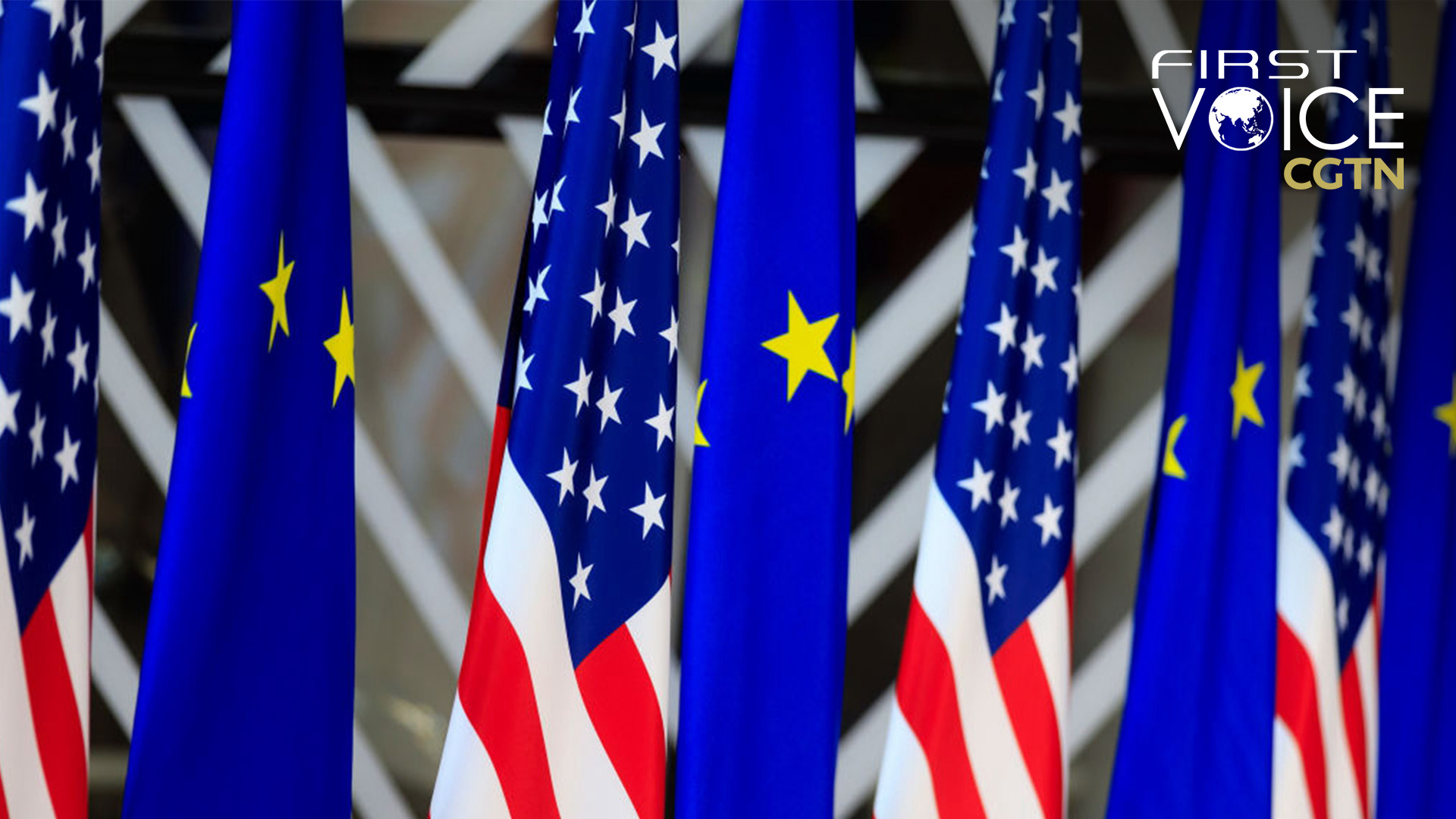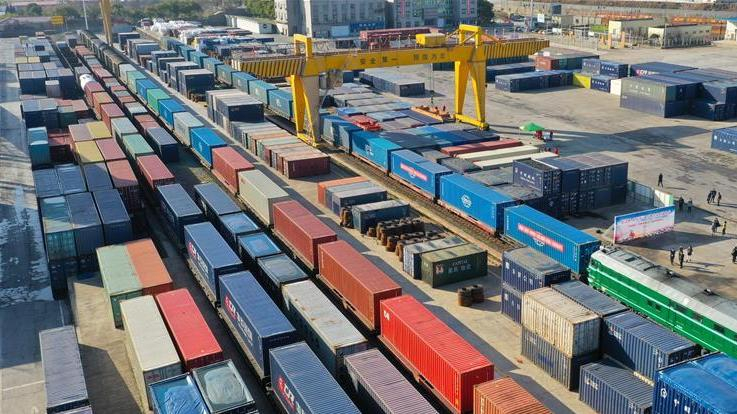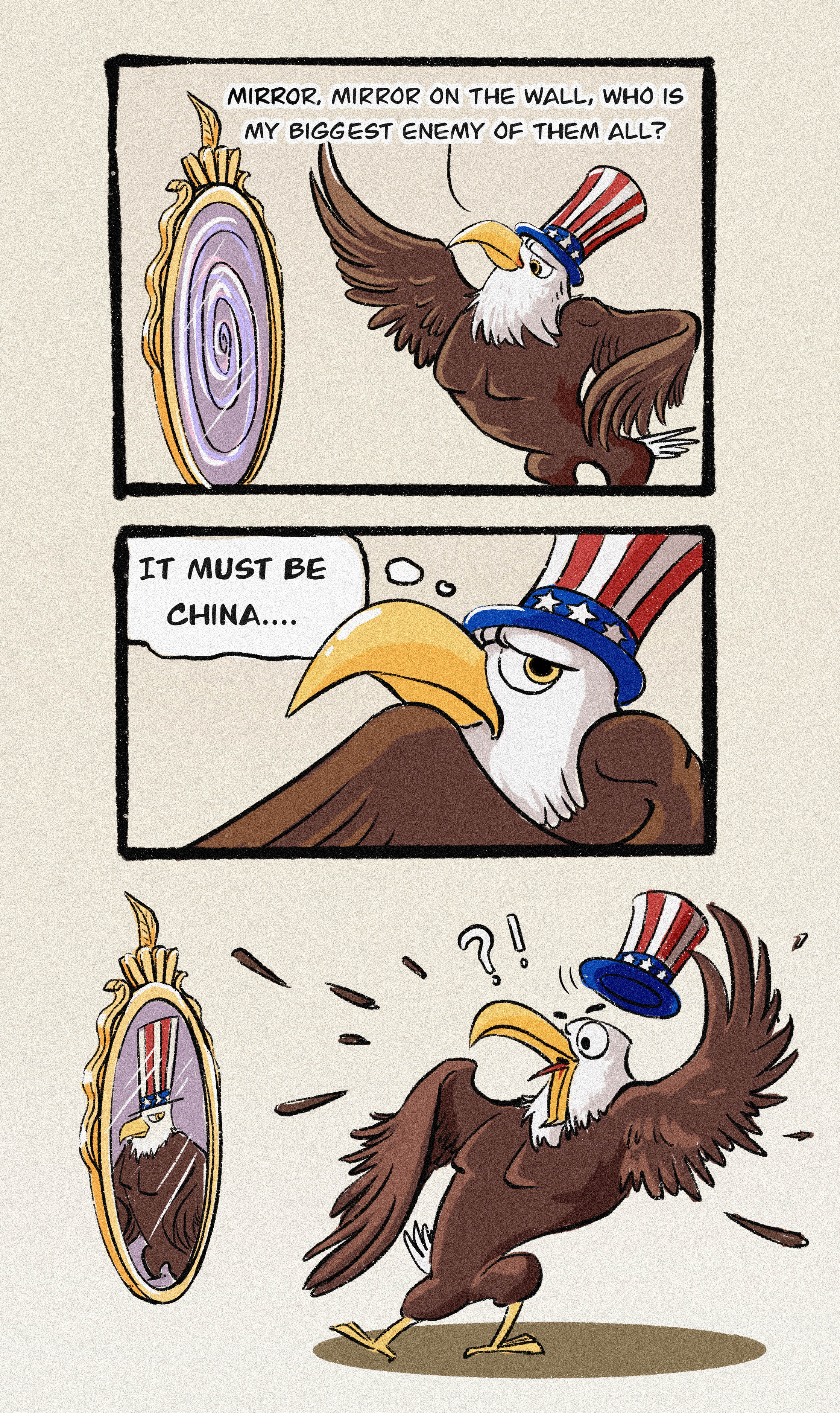
Editor's note: CGTN's First Voice provides instant commentary on breaking stories. The daily column clarifies emerging issues and better defines the news agenda, offering a Chinese perspective on the latest global events.
Earlier this week, American officials promised a "robust" joint U.S.-EU statement on China after a much-anticipated meeting of senior officials. Like so many of President Joe Biden's plans, however, the reality did not live up to the hype.
U.S. Deputy Secretary of State Wendy Sherman and Secretary General of the European External Action Services Stefano Sannino met this week for the second time this year to discuss areas for cooperation in U.S. and EU policies on China. A U.S. official said ahead of the meeting that the joint statement would reflect the "increasingly convergent U.S. and E.U. outlook on [China] and its increasingly concerning behavior."
However, the new statement looked very similar to a statement produced in a similar meeting between the two officials in May. The only concrete actions the statement commits to is holding a similar meeting in mid-2022. It emphasized the different approaches of the two economic giants, and the Europeans preference for cooperation and economic growth.
Biden's pitch to the American public when he took office was that unlike his very undiplomatic predecessor. Biden signaled that he would use traditional tools of statecraft to form an alliance of nations that would contain China and slow its rise. But as the latest meeting between the U.S. and E.U. on China shows, their differences are much deeper than diplomatic style. The problem for Biden is that the interests of Europe, Southeast Asia and the rest of the world simply don't line up with America's.

The China-Europe freight train waiting for departure at Xiangtang railway port in Nanchang, east China's Jiangxi Province, February 17, 2020. /Xinhua
The China-Europe freight train waiting for departure at Xiangtang railway port in Nanchang, east China's Jiangxi Province, February 17, 2020. /Xinhua
In 2020, China overtook the U.S. to become Europe's biggest trading partner. This comes after four bitter years of economic bullying and belligerent trade offensives against the EU launched by former U.S. President Donald Trump. The Trump years, in fact, posed a substantial and concrete threat to Europe's security situation. Trump's feckless behavior led the outgoing German Chancellor Angela Merkel telling Europe that it would have to rely on itself in the future.
EU leaders are relieved that Biden is taking a more traditional approach to its allies, but there is no guarantee that Trump or someone even more unreliable would not be in office in 2024. European leaders have dropped many signals that they do not share Biden's almost obsessive enthusiasm for curbing China's rise.
This may be because Europe's governance and economic systems share perhaps as many significant elements with China's system as with the America's. In the U.S., "socialist" is an insult hurled at political opponents, whereas many of the ruling parties in Europe embrace the label. Similarly, Europeans have enough distance from both the U.S. and China to see the strengths and weaknesses in both systems.
Perhaps most importantly, Europeans see China as a profitable trading partner. For example, in February, French President Emmanuel Macron warned it would be "counterproductive" to gang up on China, and he vowed to never be made "a vassal by China nor be aligned with the United States" in Asia.
In July, when Biden met with Merkel, he warned that China sought to "undermine free and open societies." However, Merkel took a different approach in her public remarks, stressing the need of "cooperation and also of competition" with China. And in the same month, UK's Chancellor of the Exchequer Rishi Sunak called for closer financial ties with China, warning "the debate on China lacks nuance."

The U.S.'s biggest enemy turns out to be... /CGTN
The U.S.'s biggest enemy turns out to be... /CGTN
The U.S. and Europe are far apart on financial matters, but when it comes to the willingness to use military force to contain China, the gap is unbridgeable. Even in the U.S., the public has no appetite for a shooting war with China over a breakaway island which most people could not point to on a map. The idea of fighting a war to stop communism was completely discredited by the Vietnam War. And with the debacles of recent U.S. wars in Afghanistan and the Middle East, Americans are wondering why they should get involved in another overseas adventure that has no link to their lives.
Europeans also have no vital interests on Taiwan. And they also feel particularly stung by America's chaotic withdrawal from Afghanistan, which was done without consulting and in some cases against the wishes of America's European allies.
For all of these reasons, diplomatic observers were not surprised at how tepid the supposedly "robust" joint EU-U.S. statement on China turned out to be. If the U.S. could briefly put aside its terror and panic at losing prestige and power in a new, multilateral world, it could see that China poses no security threat to the American people. In fact, the rise of China presents unprecedented economic opportunities, something that is obvious to all nations except the U.S.
The United States has been blinded by their myth that everyone should share their values and wants to emulate them. They cannot see their obsessive focus on slowing China's rise is not shared by other nations. In many cases, nations would like to see the U.S. no longer considers itself the arbiter of international trade rules and policeman of the world.
(If you want to contribute and have specific expertise, please contact us at opinions@cgtn.com.)

